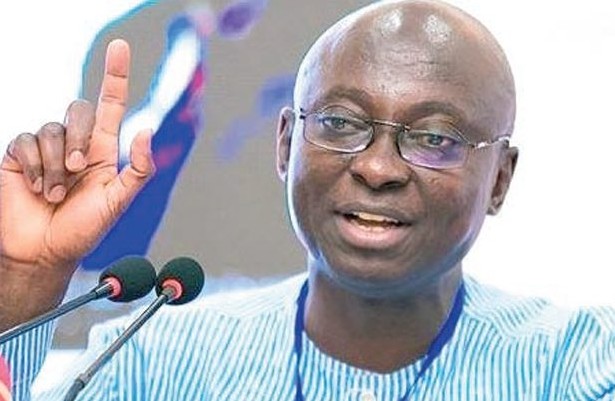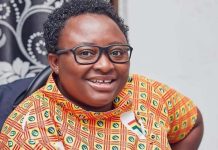The former Director-General of the National Signals Bureau (NSB), Kwabena Adu Boahene, his wife Angela Adjei-Boateng, and their company Advantage Solutions Limited, have suffered a major setback in court after the High Court dismissed their bid to stay proceedings and over ruled several objections raised by their counsel.
The three, represented by lawyer and a former Member of Parliament Samuel Atta-Kyea, appeared before Justice John Nyadu Nyante, who ruled that their arguments lacked merit and could not convince the court to halt the trial.
Mr. Atta-Kyea’s second setback was in relation a preliminary objection that Deputy Attorney-General (DAG), Dr. Justice Srem Sai, should have filed a motion—instead of a notice—to formally withdraw Mildred Donkor, the third accused (A3) and former Director of Advantage Solutions, from the prosecution.

The objection sparked a heated exchange between the DAG and Elikplim Agbemava, counsel for the discharged accused person.
“My Lord, this is a premature discharge of the third accused to rehabilitate the case of the prosecution,” Mr. Atta-Kyea argued, insisting that the Attorney-General’s office should have filed a motion because “the High Court is a court of record.”
Justice Nyante, however, interrupted counsel several times to seek clarification, asking whether there were any judicial precedents prohibiting the Attorney-General from filing a notice of withdrawal at the High Court.
In response, Dr. Srem Sai described the objection as showing “a poverty of legal industry,” stressing that the Attorney-General (AG) acted within his constitutional powers under Article 88(3) of the 1992 Constitution.
“The AG’s power to choose whom to prosecute or discontinue prosecution cannot be curtailed by procedural technicalities,” Dr. Srem Sai argued. “A notice of withdrawal is the only known and accepted way of discontinuing prosecution in respect of an accused person.”
He added that the manner in which amendments were made—whether by pen or computer—was immaterial, describing the defense’s complaint as “fundamentally misconceived.”
Counsel for A3, Elikplim Agbemava, supported the DAG’s submission, citing legal authorities that a simple notice, and not a motion, was sufficient for the AG to discontinue a prosecution.
“Even in the case of nolle prosequi, the Attorney-General may withdraw orally or by notice,” he stated, adding that the AG’s discretion in such matters is political and not subject to judicial control.
After hearing the parties, Justice Nyante ruled that under Section 59 of the Criminal and Other Offences (Procedure) Act, 1960 (Act 30), the Attorney-General or any prosecutor acting on his instructions may withdraw prosecution against any person without requiring the court’s consent.
“Once the Attorney-General has filed a notice of withdrawal, that suffices,” the judge held. “The court is satisfied that the AG has pursued the necessary processes and may bring the proceedings in conformity with his decision.”
He, therefore, dismissed the objection and ordered that A3, Mildred Donkor, be discharged, directing that her name be expunged from all court records.
Following her discharge, the court also dismissed another objection raised by Mr. Atta-Kyea concerning the admissibility of a document tendered by the prosecution’s second witness, Edith Ruby Opokua Adumuah, Head of Finance at the National Signals Bureau.
Counsel for the accused had argued that admitting the document could compromise national security and that the matter ought to be referred to the Supreme Court.
Dr. Srem Sai, however, countered that the power to classify or declassify documents as state secrets lies solely with the Executive arm of government, not a private citizen.
To him, if the court were to grant such a request, it would open the floodgates for individuals to stall criminal trials.
Justice Nyante upheld the DAG’s argument, ruling that only the Executive can claim privilege over official documents on grounds of national security, and that such privilege cannot be invoked by private persons.
“It is only when the Republic claims this privilege and it is challenged that reference may be made to the Supreme Court,” he stated. “That not being the case here, the objection is overruled.”
The document was subsequently admitted into evidence.
The case continues.









